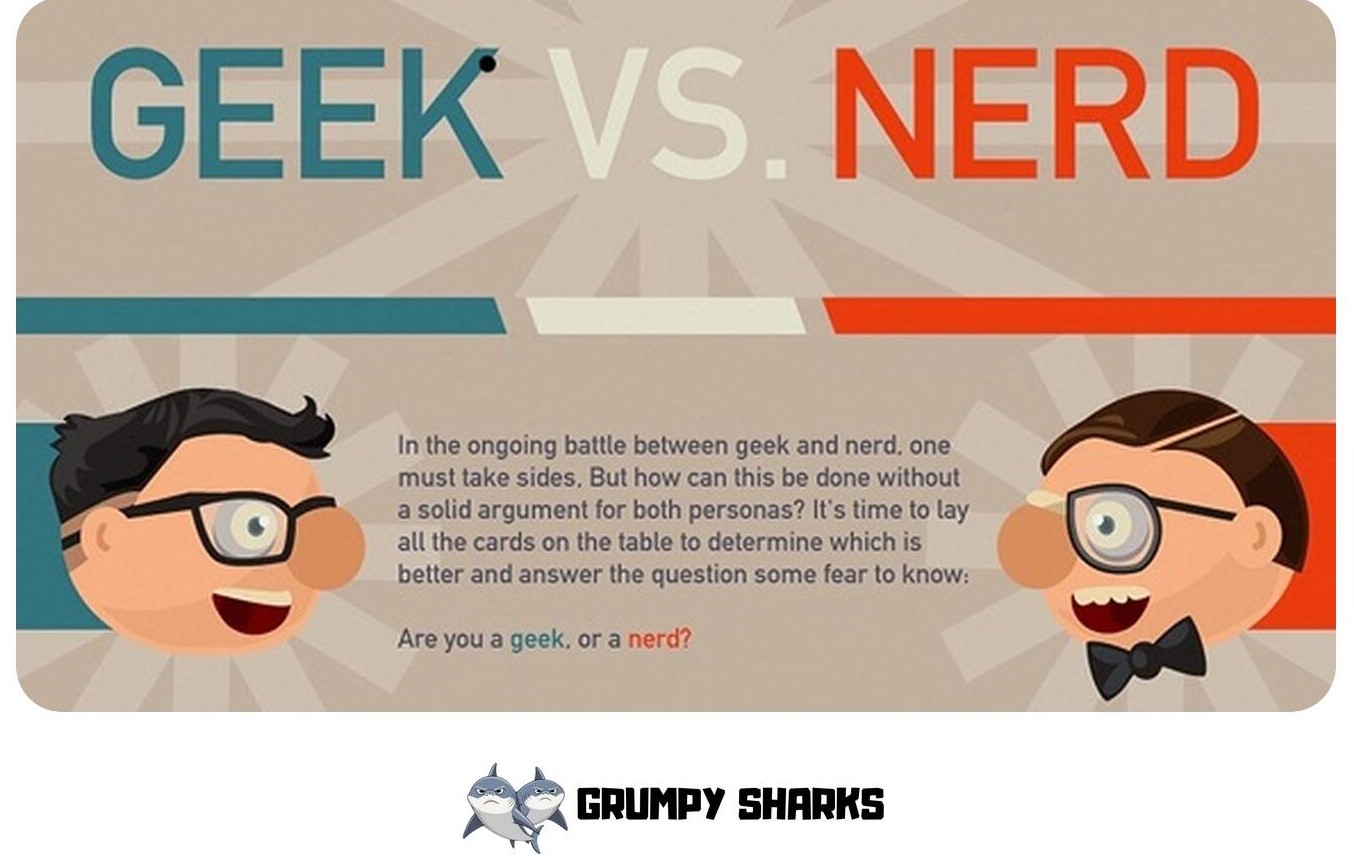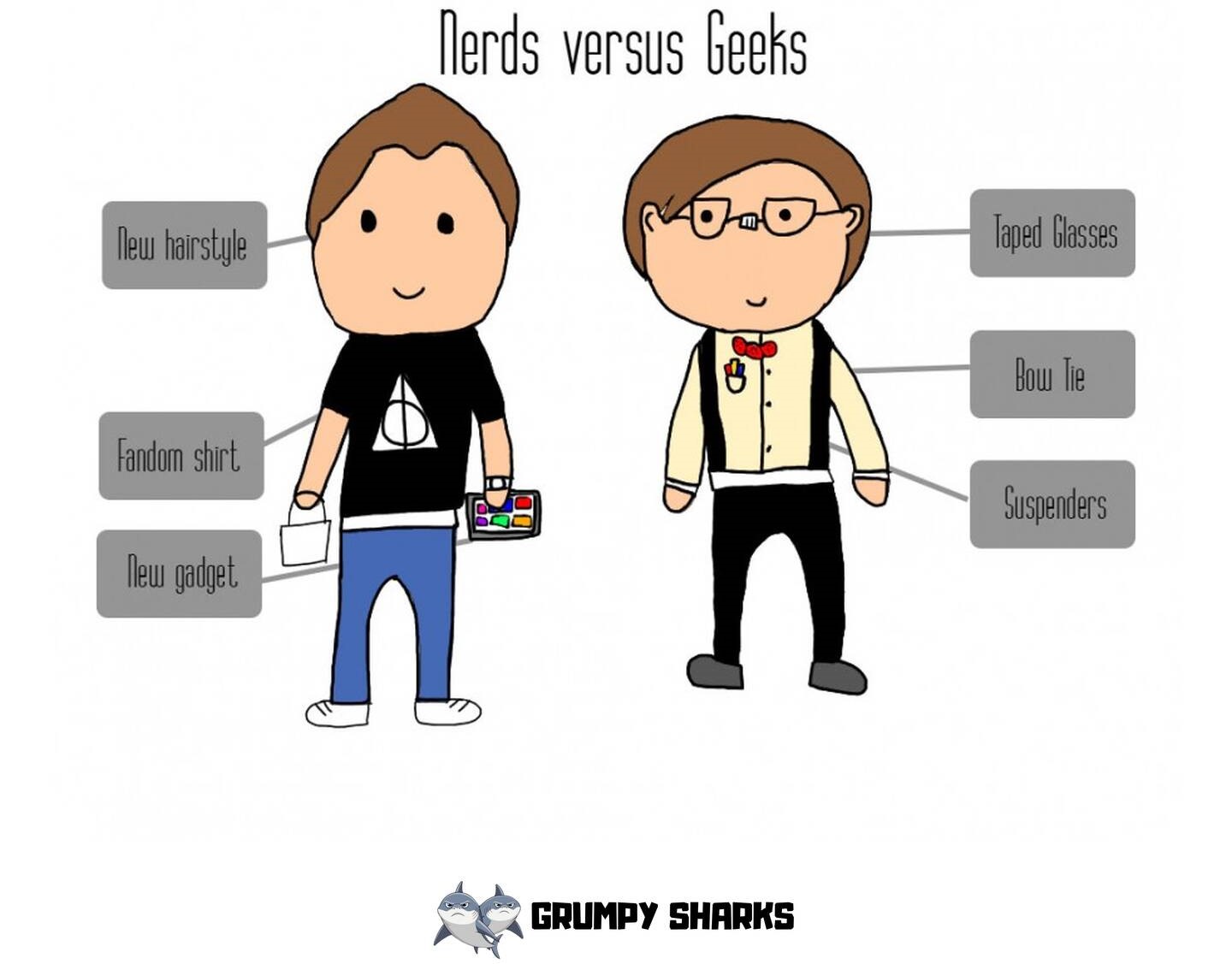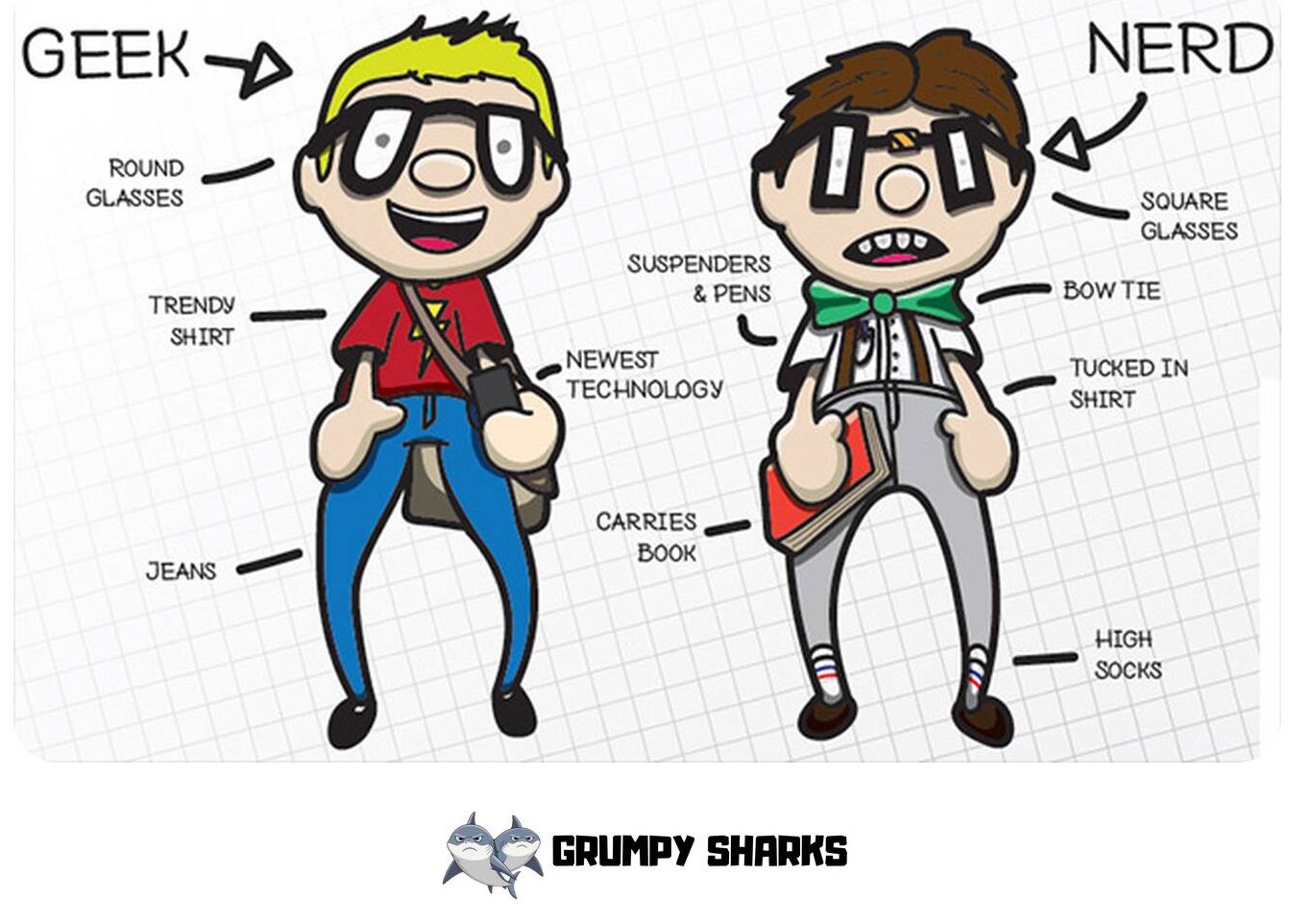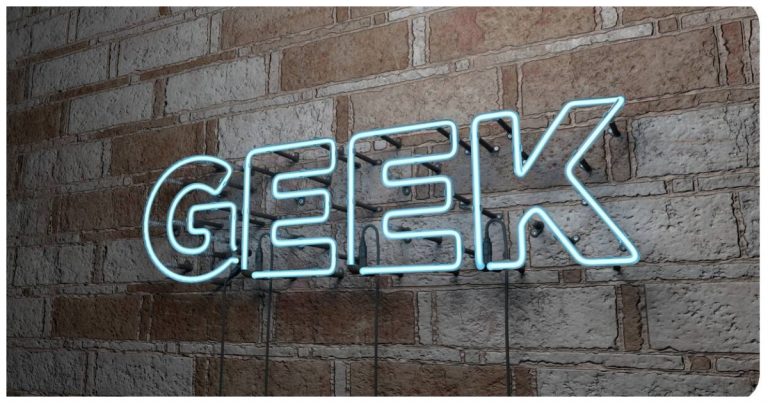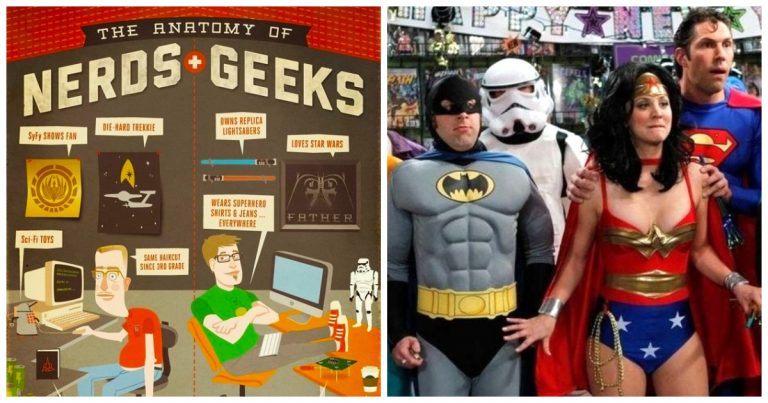Geek vs Nerd: What’s the Difference (And Does It Even Matter Anymore)?
The nerd vs geek conundrum has been a decades-long debate, and the meanings/use of these terms always seem to be changing. The intention behind these terms used to draw clear lines between someone who pursues intellectual hobbies and enthusiasms, as opposed to someone who was clearly a fandom enthusiast.
But today, those strict lines are increasingly blurry. In a contemporary sense, being a geek or nerd is no longer about fitting into set molds; it is about embracing things that make you who you are lack all the expectations of copyright and also embracing everything quirky about you. The most important thing is learning what their differences are, if they are worth differentiating at all, and how those distinctions can be explained using factual information, thinking and applicability.
#1 The Great Geek vs Nerd Debate
Though geeks and nerds have been regarded for many years as two separate groups, geeks have also often been seen as gangly awkward losers participating in pop culture fandoms or immersed in video games, and nerds are usually those people with an obsessive mathematical, scientific, literary, (etc) drive who are often take a leadership role in technology development, large scale developments, or information and communication insights so nerds are always garnering significant respect based on their intelligence about any given topic at the time. Moving into the 21st century these identities have evolved considerably, and the two communities have come together in a variety of ways. Even the distinction between geek and nerd has blurred, as geek culture became more mainstream, especially as tech companies started launching products we can’t live without and Disney bought numerous intellectual properties to pillage.
Why does this matter? Because geekdom and nerd culture for many are badges of honor, no longer something someone can force you into a negative stereotype. You cannot ignore that having really influential business people, movie directors, and people in the gaming industry, primarily for video games, act as figure heads that facilitate the power change into intellectuals and everywhere is a really good thing!!
#2 What Is a Geek?
Geeks generally define themselves by passionate fixation on some interest – comic books, gaming, and technology are examples. Geeks are people who, until recently, were labeled with negative terms. People often saw geek as a social awkwardness or obsession with some aspect of their life. Today, in our diverse world, the geek identity has been reclaimed, and even celebrated, as geek media like superhero movies and technology have become popular together.
Common Traits: Passionate, Tech-oriented, Niche-obsessed
A geek is someone who has a high level of enthusiasm for a niche area. A geek’s intellect is merely incidental; it is based more on having a vested interest into the topic of passion. Geeks are passionate, external, and focused on community. They may join fan clubs, go to conventions (Comic-Con), or celebrate a hobby with others who share the same passion.
For example, a gadget geek may spend countless hours researching the latest smartphone model, shopping for its site, watching unboxing videos, discussing specs on their social media platforms. Similarly, a comic book geek could be a superhero’s biggest fan for a specific hero. This person may spend weekends collecting comic issues, cosplay, and participating in online fan discussions.
#3 What is a Nerd?
For geeks, enthusiasm about their passion is their main focus, while nerds have more of a focus on intellectual pursuits. Defined traditionally, nerds tended to be characterized as academic with deep focuses on areas of interest, usually math, science, engineering, or literature. They tend to be more focused on knowledge acquisition and often can exclude others from their pursuit of knowledge; they can be socially excluded. Nerds also tend to be more introverted; once they dive in to something they often never leave it or will renew there interest in it. Nerds are typically around schools and businesses.
Common characteristics: Intellectual, academic, introverted.
Nerds are intellectually curious. Nerds usually love learning and exploring topics in great depth – in many cases, science, technology, and puzzles – but also will meditate on their interests for hours on end. Nerds do not always want the same level of public recognition of their interests (it is often collected through academic or intellectual publications), but they will simply press that they are in some case the dolts who contribute advancements to society though field advances in math or engineering or doing research.
Example: (math nerd) A nerd who enjoys solving the most complicated of mathematical equations (this would take hours)… (chess nerd) A nerd who studies chess strategy from books or problems and maybe some local pro-wrestling leagues. Often when nerds participate in these areas they will have three or four hours to independently study without interruption; so even if these nerds are may not be out repping their nerd labels in case public competition or caveat areas of intellect, their journey is altruistic at some level by retaining cognitive skills developed in their own thought and problem solving areas.
#4 The Major Difference Between Geeks and Nerds
The main difference between geeks and nerds lies in their focus and how they express that enthusiasm. Geeks are passionate about their interests, and exuberantly demonstrate this enthusiasm to durable effects and heavy involvement (i.e. Cosplay, gaming streams, forums). Nerds are typically more involved with personal improvement and intellectualism and use learning and problem solving to invest their time.
Geek = Passion Focus, Outward Expression
Geeks are the individuals that wear their passion outwardly, and usually become heavily involved in public endeavors with their fandom (Comic Con, planning fan events, contributing to online communities or forums). Geeks love public pressence and sharing their research or hobbies in a way that calls for other people to be involved.
Nerd = Knowledge Focus, Inward Expression
Nerds on the other hand aren’t usually the ones involved in public pursuits and usually focus on mastering subjects on their own effort or skill. Nerds may not seek acknowledgment or affirmation in the same manner that geeks will but is often recognized by the sheer functionality of their mentality within academic or professional environments.
Social Perception: the Coolness Factor, Confidence, & Community
In the past, geeks have been the cooler group because they were more involved in (more visible and mainstream) hobbies like video games, cosplay, and geeky media. The nerds struggled with being socially awkward. Since geek culture has gone mainstream, the coolness factor of both identities is starting to converge, thus, geeks and nerds are both seen as generally cool, respected for their creativity, expertise, and contributions to culture and technology.
#5 The Overlap between Geeks and Nerds
While there are some clear differences between the two, geeks and nerds share a serious passion for learning and detail. While the interests may diverge between geeky fandoms and nerds’ intellectual pursuits, both communities are marked by obsessive commitment to whatever they are focused on. geek-driven media like Marvel and Star Trek have made nerdy fandoms cool, demonstrating nerd-based interests in pop culture and modern culture in general.
Whether it is through geek culture, gaming, or even the growth of the tech industry in Silicon Valley, both geeks and nerds are shaping technology and modern pop culture. Essentially, whether it is someone who self identifies as geek or nerd, neither can be used solely as a label. It involves a cultural movement that continues to gain traction every day!
#6 Does The Distinction Still Matter In The 21st Century?
In the 21st century, the geek vs. nerd distinction is much less notable than it was in the past, with both identities merging and with more people embracing hybrid identity forms. Tech geeks can also be academic nerds at the same time. Similarly, those interested in pop culture who may identify as nerds can do nicely in nonsocialized and intellectual realms. Today, due to the increasingly mainstream nature of both geek culture and nerd culture, each label has become less rigid, and more nuanced to celebrate what makes each of us distinct through our shared commitment to passion and identity!
#7 FAQs About Being a Geek Today
1. Can you be both a geek and a nerd?
Yes! Many people embrace both labels, blending intellectual pursuits and passionate hobbies.
2. Which one is more socially accepted today?
Both terms are now widely accepted, and being a geek is considered cool, especially in tech and entertainment.
3. Are these terms still relevant for younger generations?
Yes, these terms are still relevant today, and younger generations are increasingly embracing both identities as part of their cultural expression.
#8 Conclusion
In the end, geek vs nerd carry less weight than they ever did. The world we live in today promotes curiosity, creativity, and enthusiasm in all of their forms. So, whether you are a geek, a nerd, or both? Celebrate your uniqueness. We need to look past the labels and embrace your passion for what you love -that is what makes a geek or a nerd!

